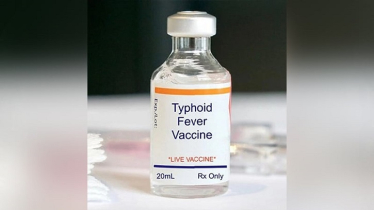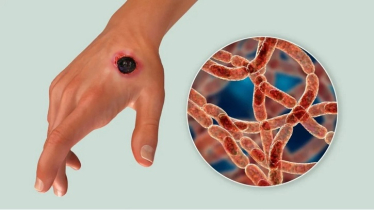
The globally renowned TIME magazine has named MDCF-2, a special complementary food designed to restore gut health in malnourished children, to its prestigious “TIME Best Inventions of 2025” list under the “Social Impact” category. The innovation is the result of years of collaborative research between icddr,b and Washington University in St. Louis, USA.
MDCF stands for Microbiota-Directed Complementary Food—a unique supplement formulated to stimulate beneficial gut bacteria that promote healthy growth and development in children.
Despite some progress in recent years, malnutrition remains responsible for nearly half of all deaths among children under the age of five worldwide. Ongoing conflicts, displacement, and natural disasters have further exacerbated the crisis, putting millions of children at risk of stunting and wasting.
MDCF-2 is made from a precise blend of chickpeas, soybeans, peanuts, and green banana flour. These ingredients were carefully selected to nourish specific beneficial gut microbes, thereby strengthening immunity, supporting neurological development, and ensuring healthy growth in children.
The innovation originated from an informal discussion between icddr,b Executive Director Dr. Tahmeed Ahmed and Washington University microbiome scientist Dr. Jeffrey Gordon. While Dr. Ahmed has devoted decades to studying childhood malnutrition, Dr. Gordon—known as a pioneer in microbiome research—initially focused on obesity before exploring the connection between gut microbes and nutrition.
Dr. Gordon said, “Our research shows that a child’s nutrition and growth depend significantly on their gut microbiota. The beneficial microbes we identified can process specific food components that the body cannot handle on its own. Clinical trials conducted among Bangladeshi children demonstrated that MDCF-2 can rebuild the gut microbiome, with effects extending beyond the intestine.”
Dr. Tahmeed Ahmed remarked, “This recognition is a profound source of inspiration for us. It proves that when science and compassion come together, even the most complex global health challenges can be solved. This locally developed, affordable solution has the potential not only to save millions of malnourished children but also to enable them to thrive.”
Currently, large-scale research on MDCF-2 is underway in India, Pakistan, Mali, and Tanzania. Experts believe that this innovation could revolutionize global nutrition programs and fundamentally transform how malnutrition is prevented and treated around the world.





